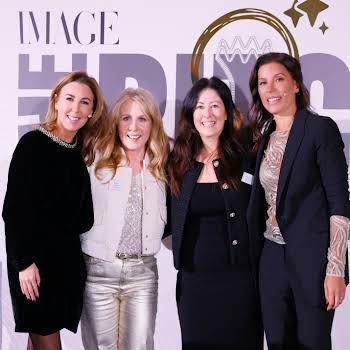
Perspectives: So far, destigmatising mental health in the workplace has been a sham
By Amanda Cassidy
21st Sep 2021
21st Sep 2021
If we're going to progress with bringing mental illness out of the shadows in the workplace, we need to look not just at stress, anxiety and depression. What about bipolar disorder, ADHD, grief, trauma?
Businessman, Matthew Sicome has bipolar disorder. Having spent much of his working life in America, Matthew was shocked to encounter the levels of stigma against mental health conditions in Ireland.
“In America as long as it was out in the open, it was like there was no elephant in the room, nothing waiting to come out. It would be impossible to be that open about my condition here. I think I would find it hard to get a job, to be honest.”
For all our fuss about workplaces that push mental health discussions; think emails about how to beat the January blues, 10 tips to live well with depression; seminars about anxiety or panic attacks, it seems that there is a limit to the type of “acceptable” mental issues that companies can stomach.
It is true to say that the stigma which prevented us from talking openly about mental health issues has been cracked wide open by large corporations when it comes to the wellness side of their employees.
But only with certain mental health problems.
Mental Health Lite
Ann is one employee who describes it as “Mental Health lite.” She works for a big corporation in Dublin. She says her mental health problems don’t seem to be covered:
“My inbox is flooded with wellbeing activities and mental health talks from my corporate responsible employer. They are so proud of lifting the taboo on mental health. But when you scratch the surface, these resources are all focused on workplace stress or maybe anxiety or depression if we are lucky. The odd seminar on grief or ADHD is about the extent of it.
Where are the conversations around unresolved trauma, borderline personality disorder or schizophrenia? These are mental illnesses that need to be destigmatised just as much and are just as problematic to businesses as stress in the office.”
Of course, we cannot absolve our health system from the responsibilities of treating such illnesses. It isn’t really the job of employers to mind minds. However, fancy footing around it means that those with less acceptable forms of mental health problems feel further isolated.
Anxiety is okay, schizophrenia, not so much.
Responsibility
Businesses have an ulterior motive to ensure employees are healthy both of mind and body. But, as Alexander Den Heijer wrote; When a flower doesn’t bloom you fix the environment in which it grows, not the flower.
Either we are lifting the taboo or we are not.
Plus, the more cynical of us would point out that corporations don’t really care, not really. They are brands, giant logos. Their mission, their legal mission is to drive business and profits. Their mission isn’t to do society’s job, lifting the dark place where these problems are forced underneath. And while it is wonderful that so many initiatives are being rolled out, let’s not miss the wood for the trees.
There is also the legal ramifications of being too open with your employer. While it may seem well-intentioned to monitor the mental health of your employees with their best interests in mind, it raises multiple legal and ethical questions. It is, after all, the feelings and emotions of an individual that the employer would be monitoring in the workplace.
The risk is that such data would be accessible by the employer and possible third-party service providers and can be easily misused.
The whitewashing of mental health problems continues online. Influencers duly share their experiences of anxiety or offer quick grounding techniques to reduce depression, along with a string of strong-arm emojis. But when it comes to some pretty brutal mental health problems, there is a deafening silence.
The shame surrounding the more explosive issues like; psychosis, suicide, PTSD persists. That’s not as easy to share. It is much less comfortable exposure. Yes, these problems are far less common but they too fall under the umbrella of mental health.
Either we are lifting the taboo or we are not.
Of course, nobody would dare minimise how debilitating anxiety or indeed any mental health problem is for anyone. The dark fog is always close. But the differential here is how we have learnt to embrace and destigmatize certain disorders but not others. There is a disconnect in the shame, and that matters.
It prevents those who need help the most from seeking it. And the cost to business and society is high.
This article was first published in January 2021























